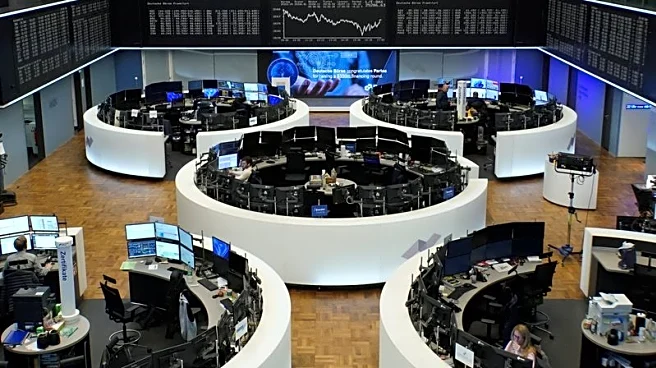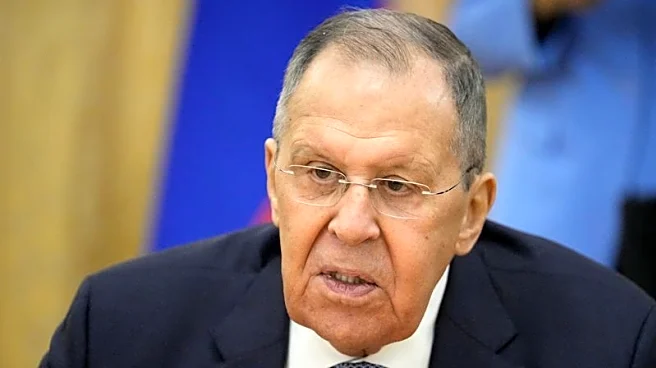What's Happening?
The BRICS New Development Bank (NDB) celebrated its sixth anniversary in July 2021, reflecting on its successes and challenges since its inception. Established in 2015, the NDB was created to mobilize
resources for infrastructure and sustainable development projects in BRICS member countries and other developing nations. Over the past six years, the bank has approved $15 billion for over 53 projects and created a Project Preparation Fund to support bankable projects. The NDB has also introduced local currency bond programs in China, South Africa, and Russia, aiming to reduce dependence on Western markets. Despite these achievements, the bank faces challenges such as political instability among member countries and comparisons with the China-led Asian Infrastructure Investment Bank (AIIB).
Why It's Important?
The NDB's achievements over the past six years demonstrate its role in providing development funding and supporting infrastructure projects in emerging economies. By offering local currency funding, the bank reduces reliance on Western markets and provides greater financial stability for member countries. The NDB's focus on sustainable development and green finance is crucial for addressing global challenges such as climate change. However, the bank's challenges, including political instability and comparisons with the AIIB, highlight the complexities of operating in a diverse geopolitical landscape.
What's Next?
The NDB may continue to expand its membership and influence in the global financial system, potentially increasing its capital base and capacity to fund large-scale projects. The bank's focus on sustainable development and local currency funding could drive innovation in project implementation, setting new standards for development finance. As the NDB navigates political challenges and comparisons with the AIIB, it may need to revisit its original mandate and strategy to ensure continued success.
Beyond the Headlines
The NDB's evolution highlights the shifting dynamics in global development finance, with emerging economies taking a more active role in shaping the agenda. This could lead to a more balanced and inclusive international financial system, reducing reliance on traditional Western-led institutions. The bank's emphasis on sustainability and ESG impacts may also encourage other development banks to prioritize these factors, leading to more environmentally and socially responsible projects worldwide.










